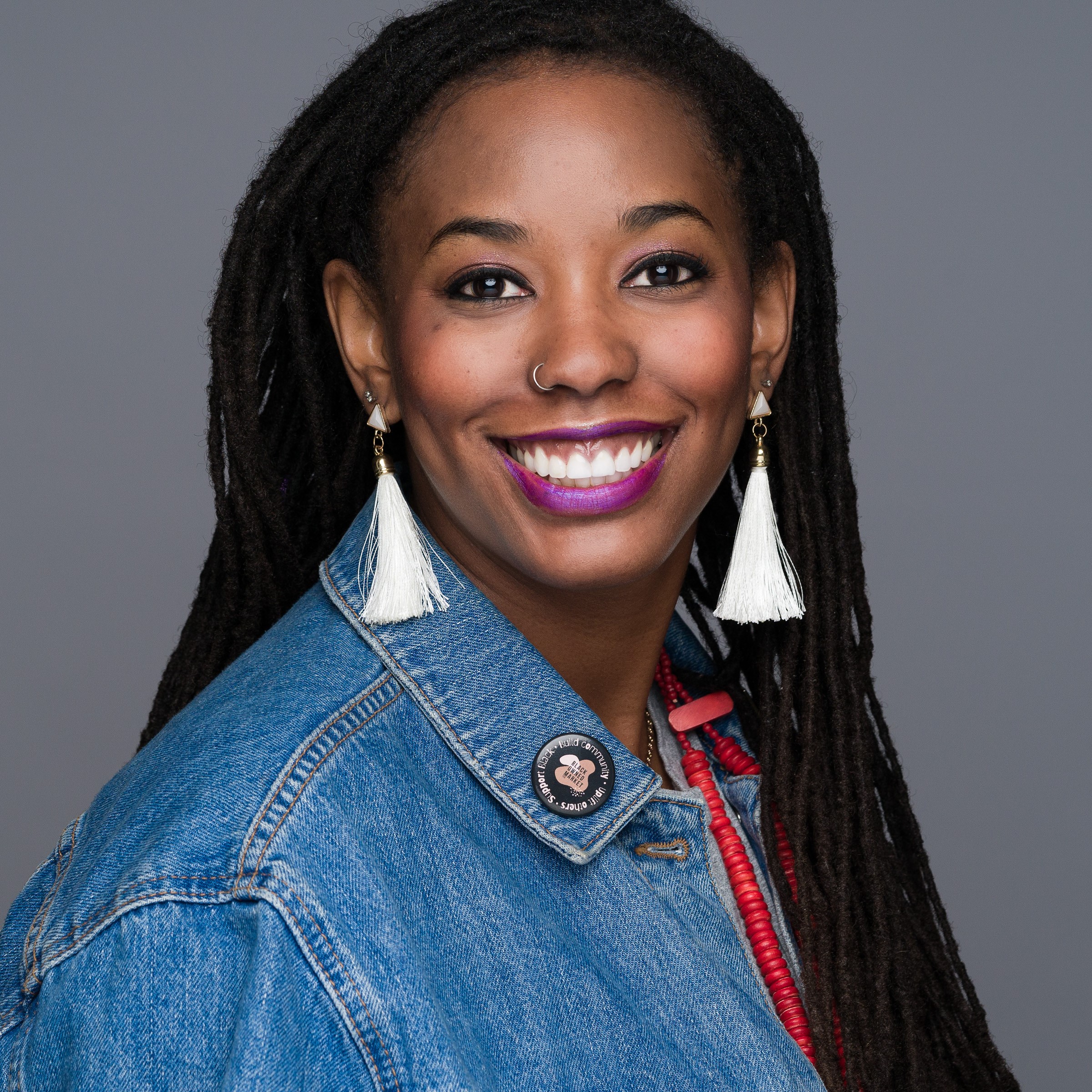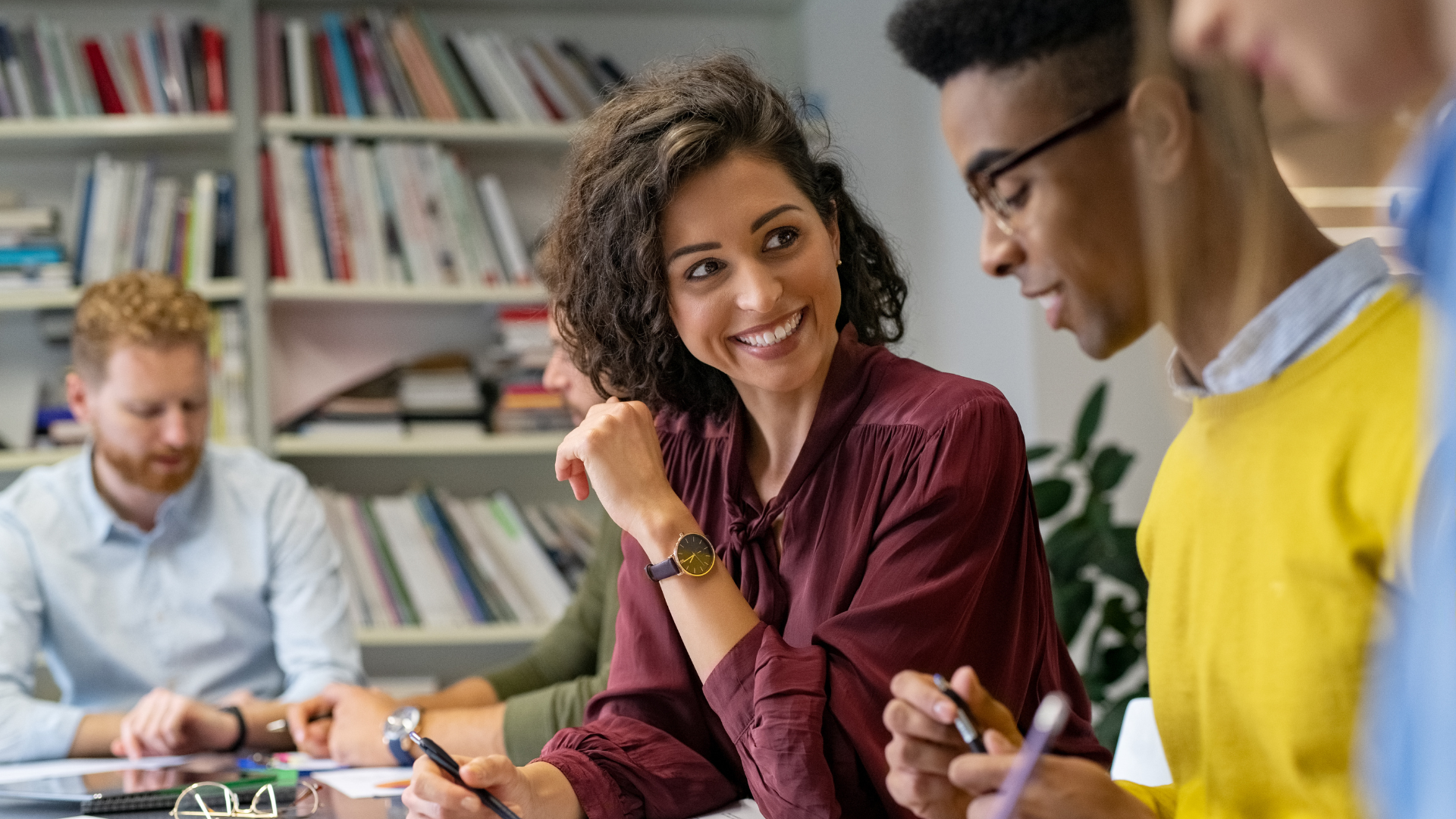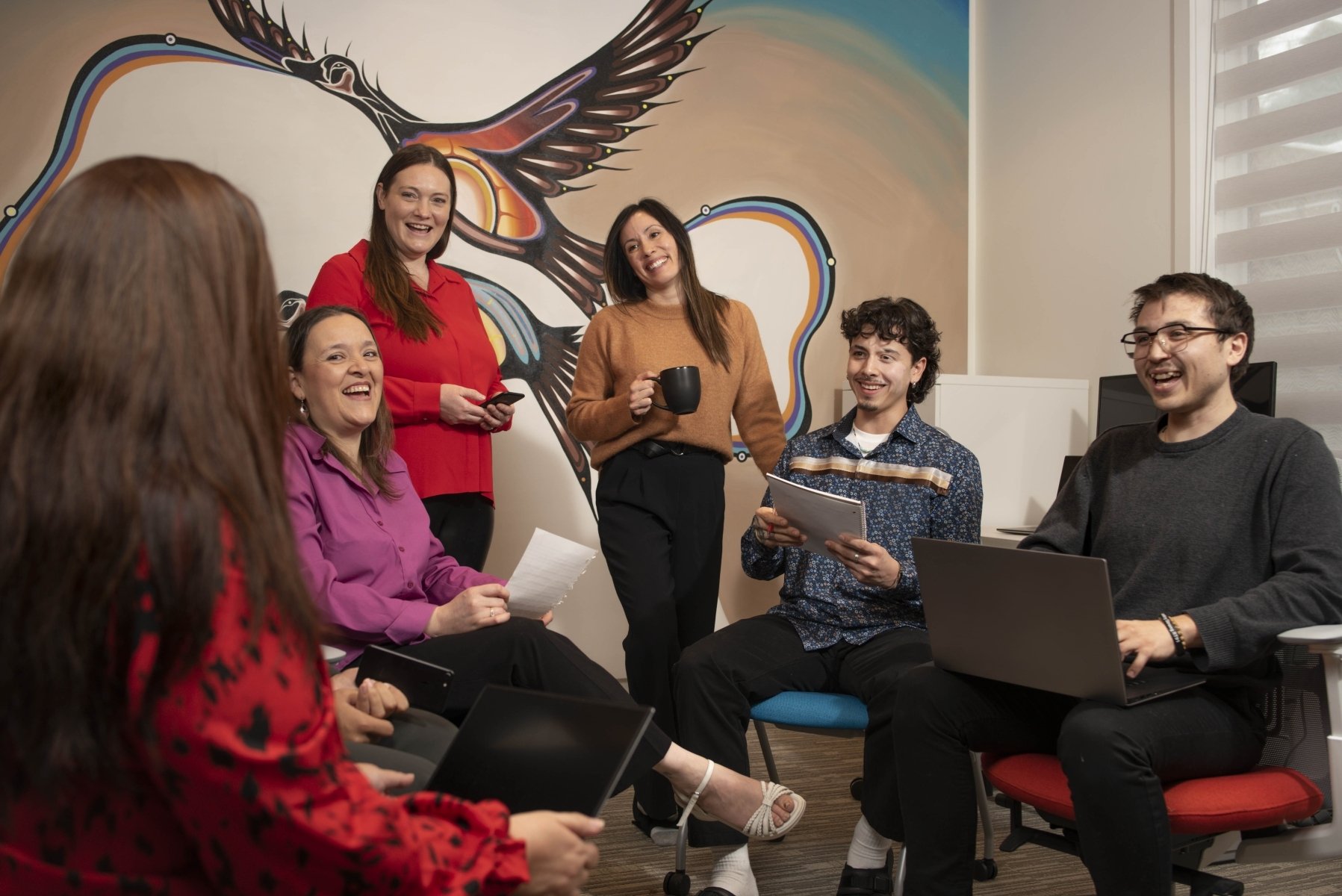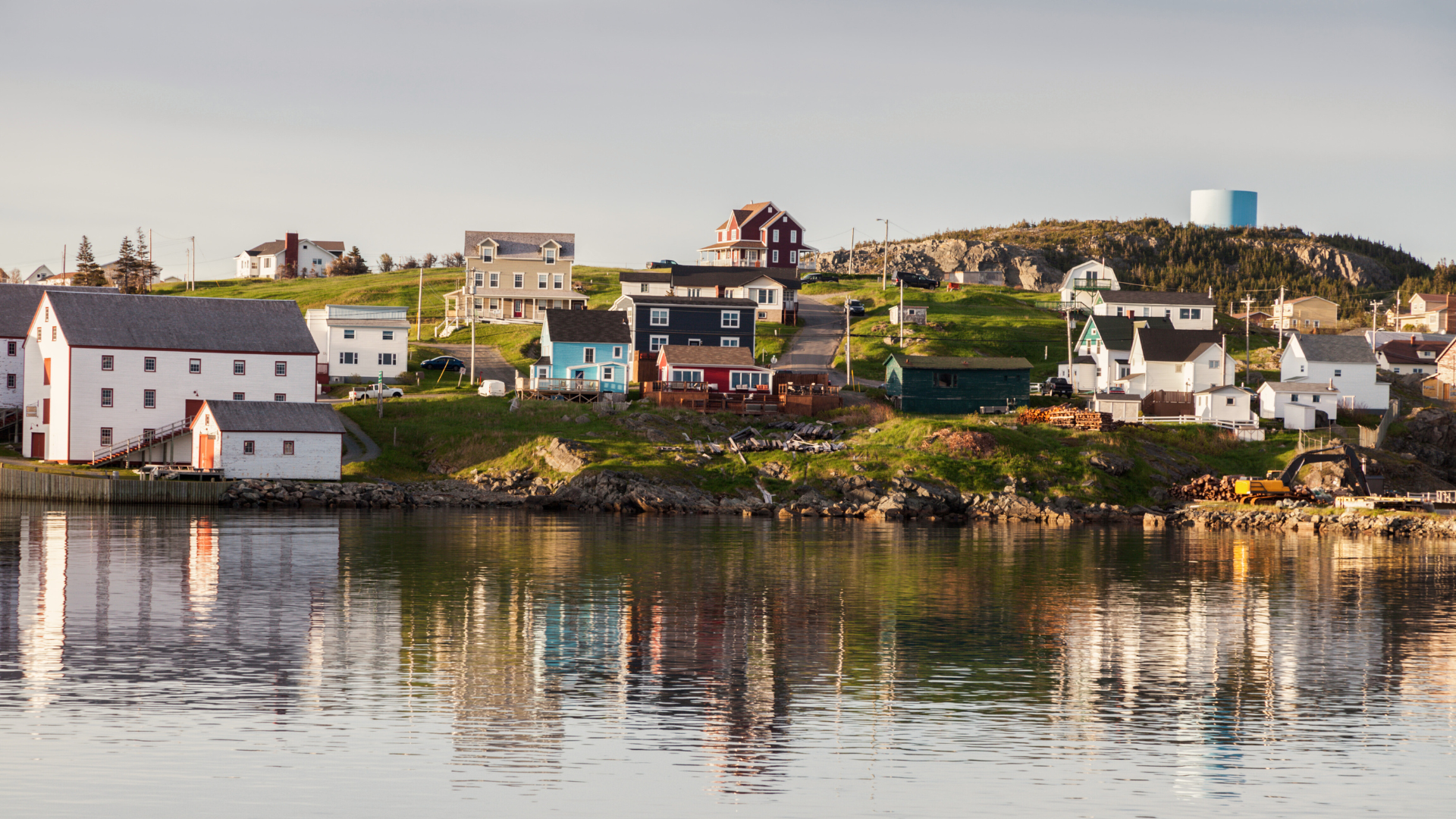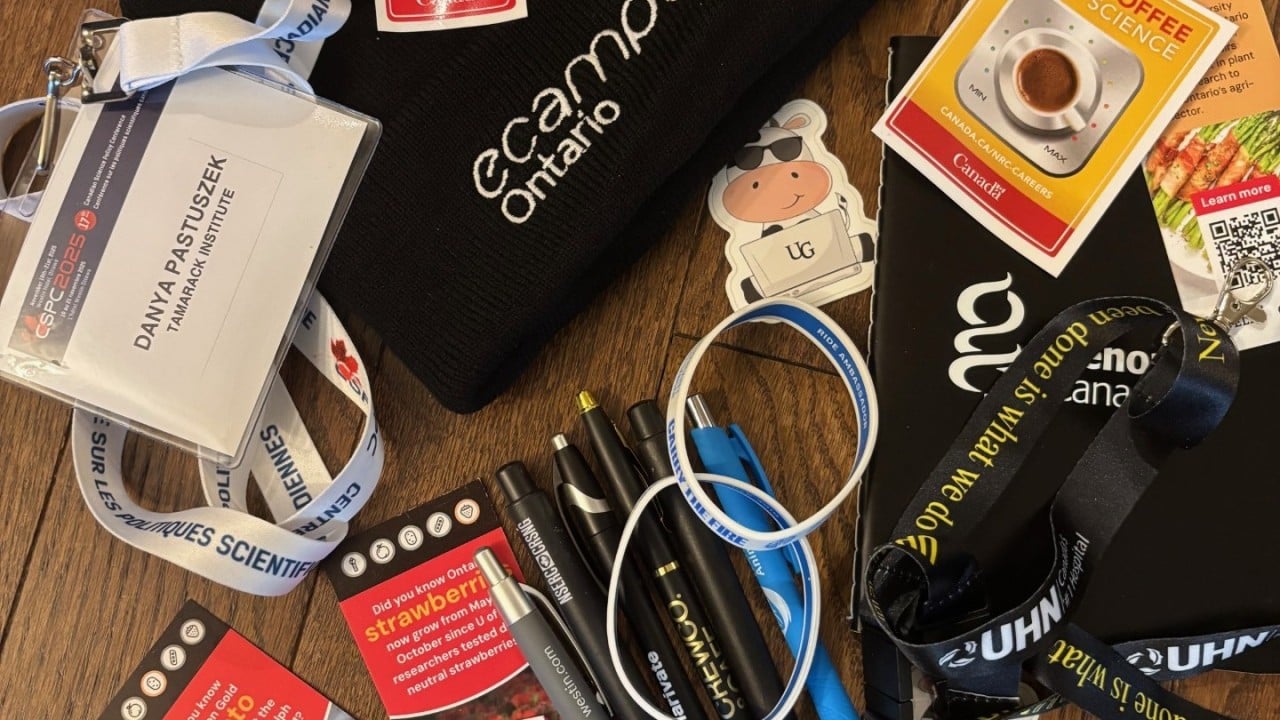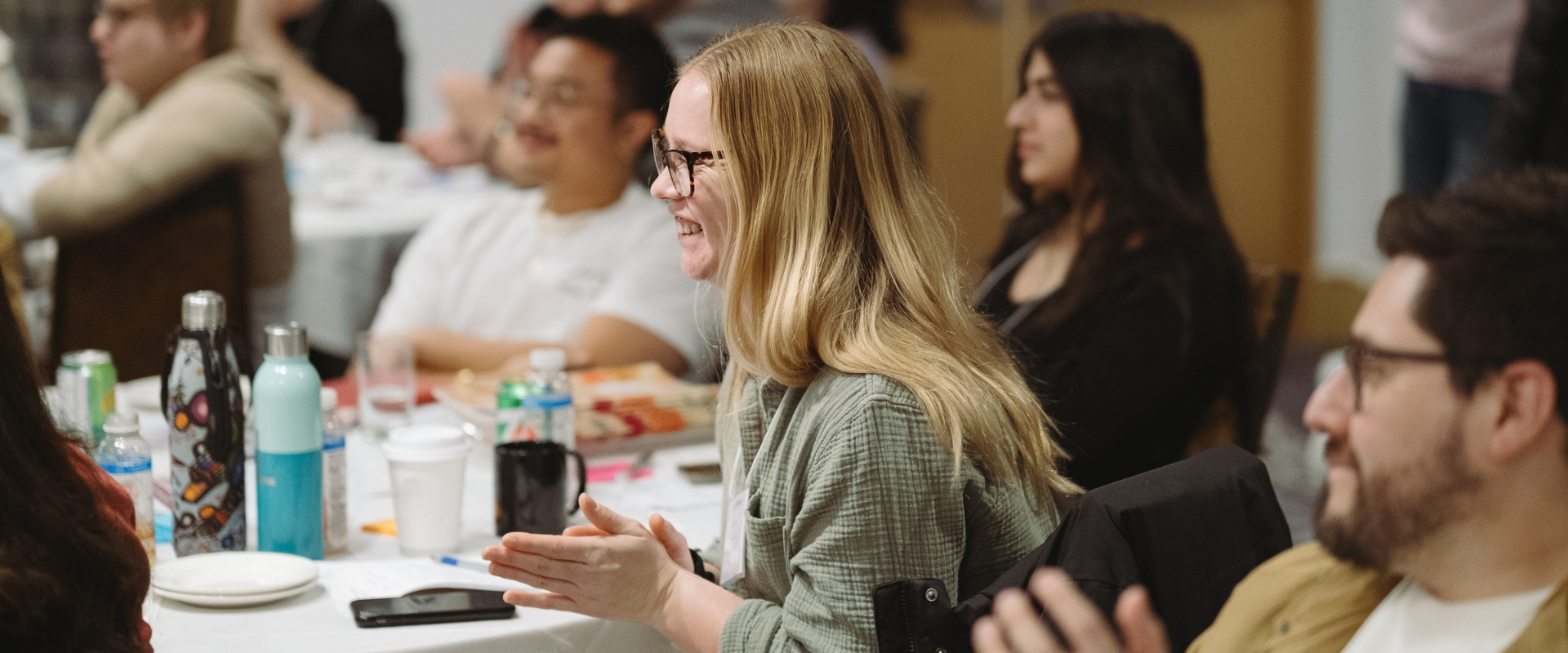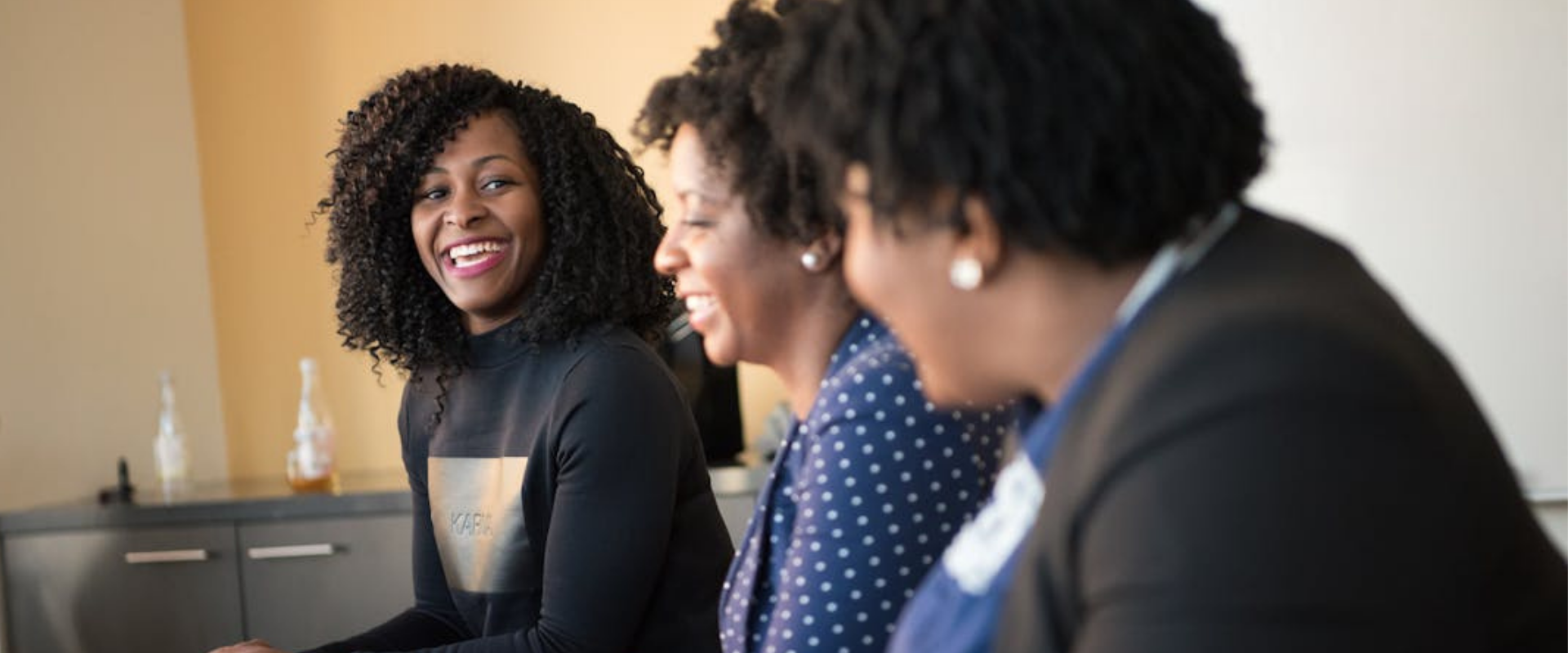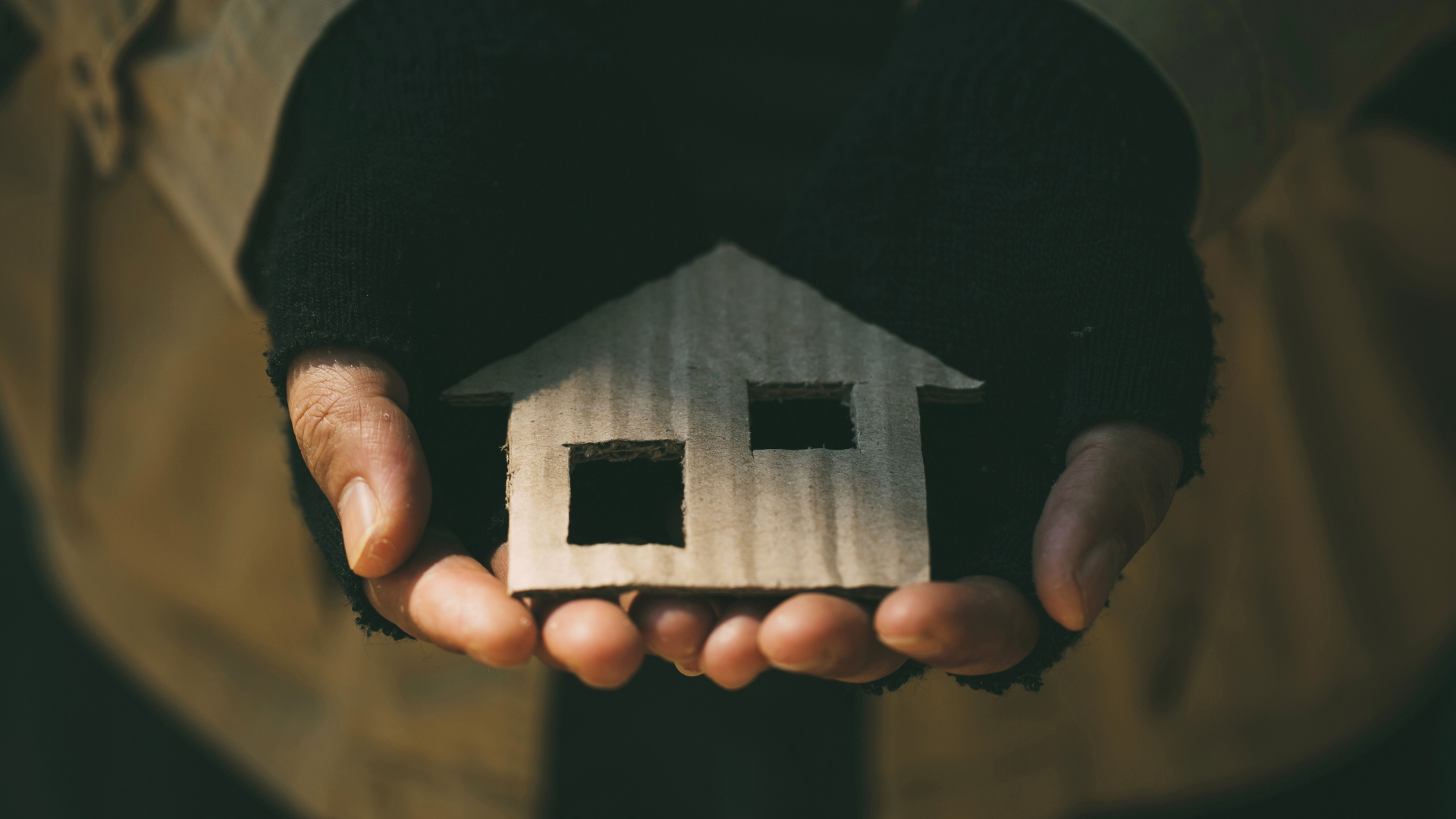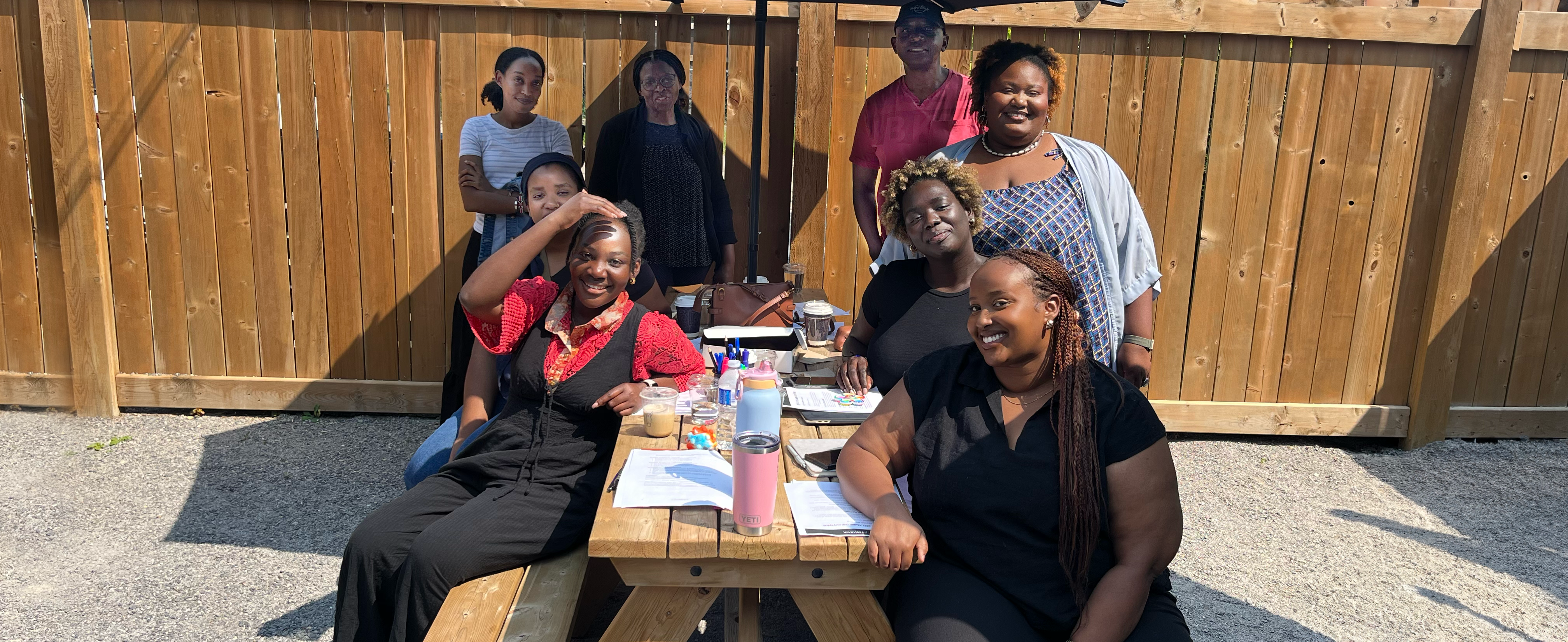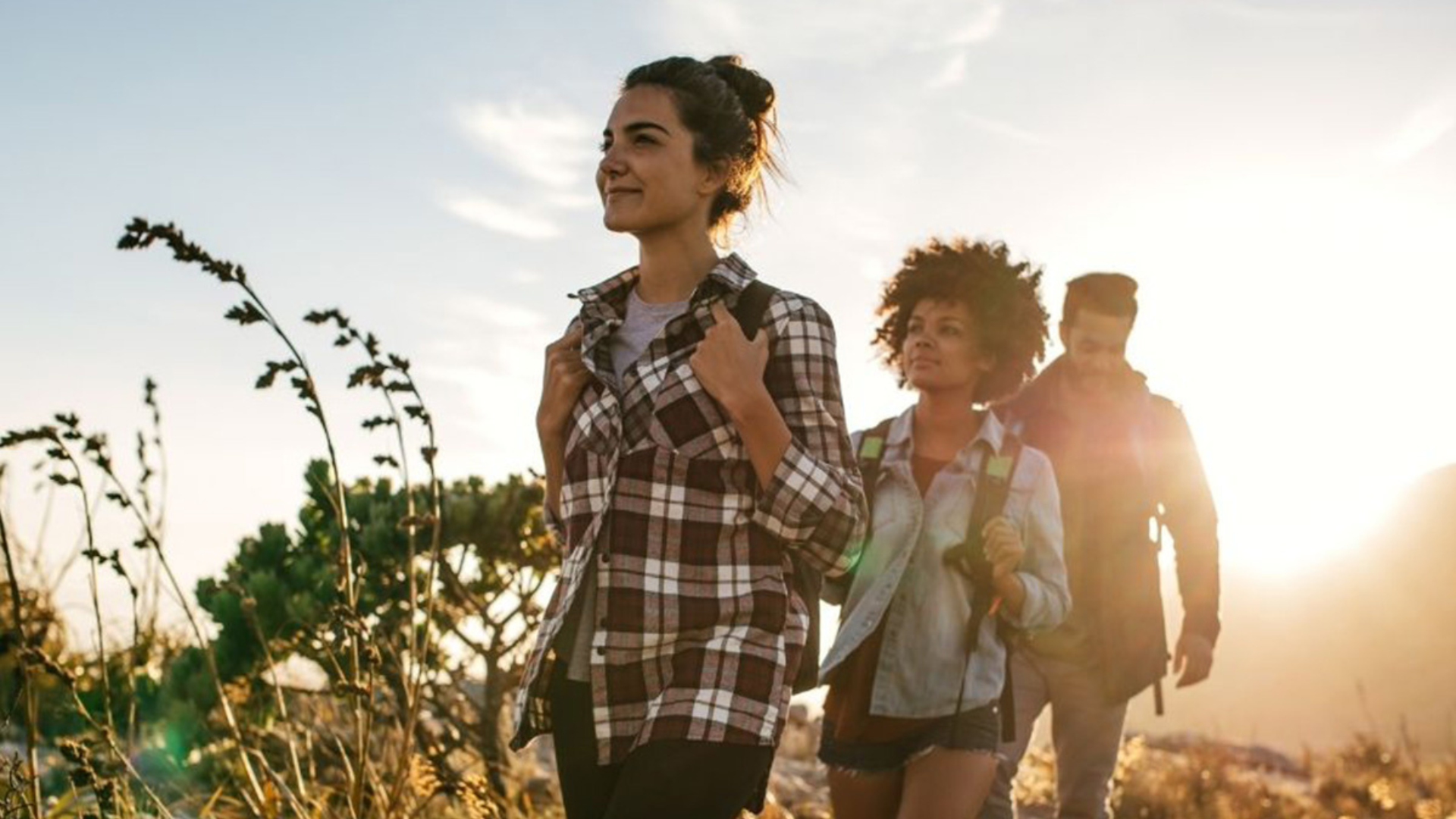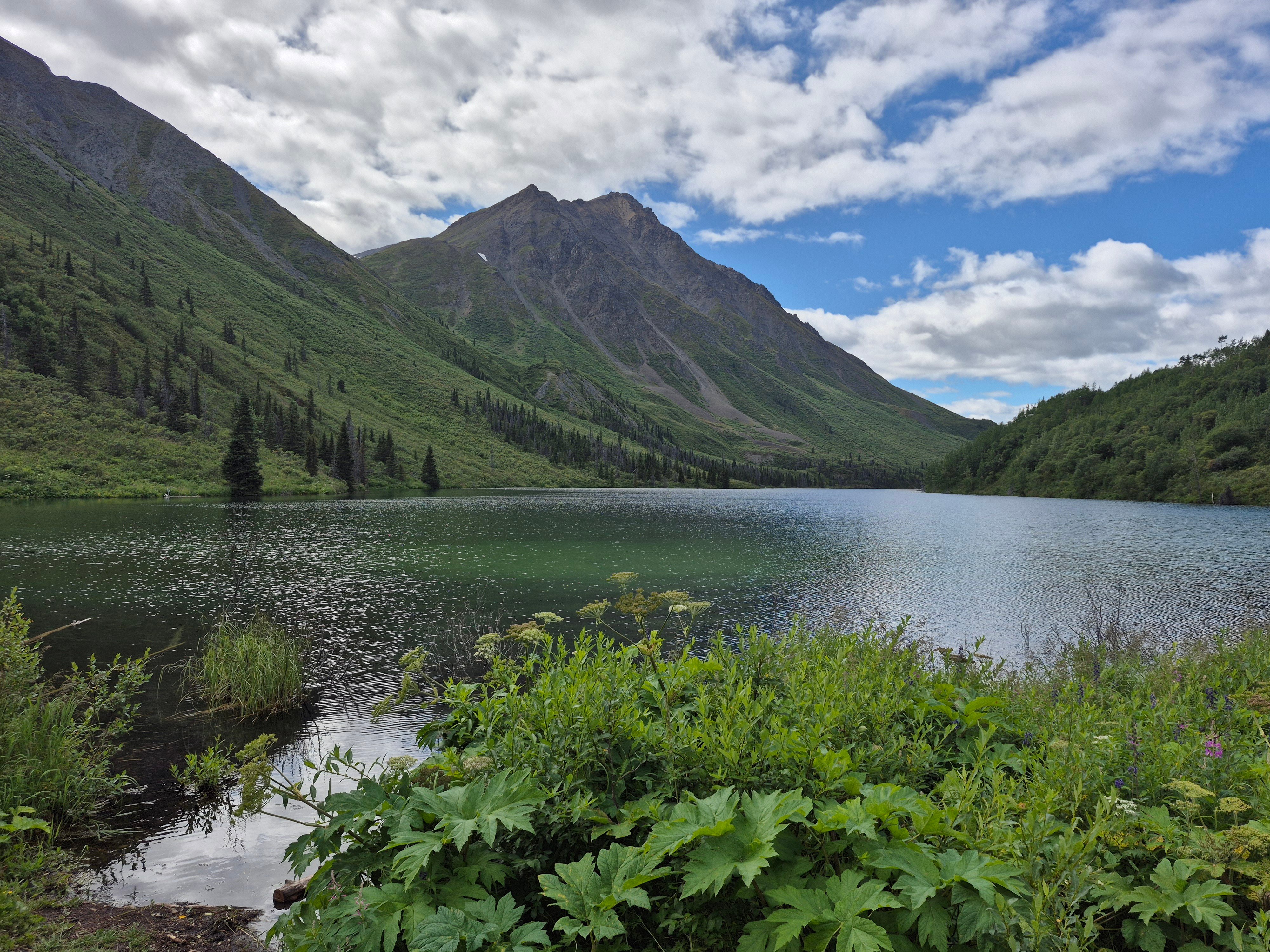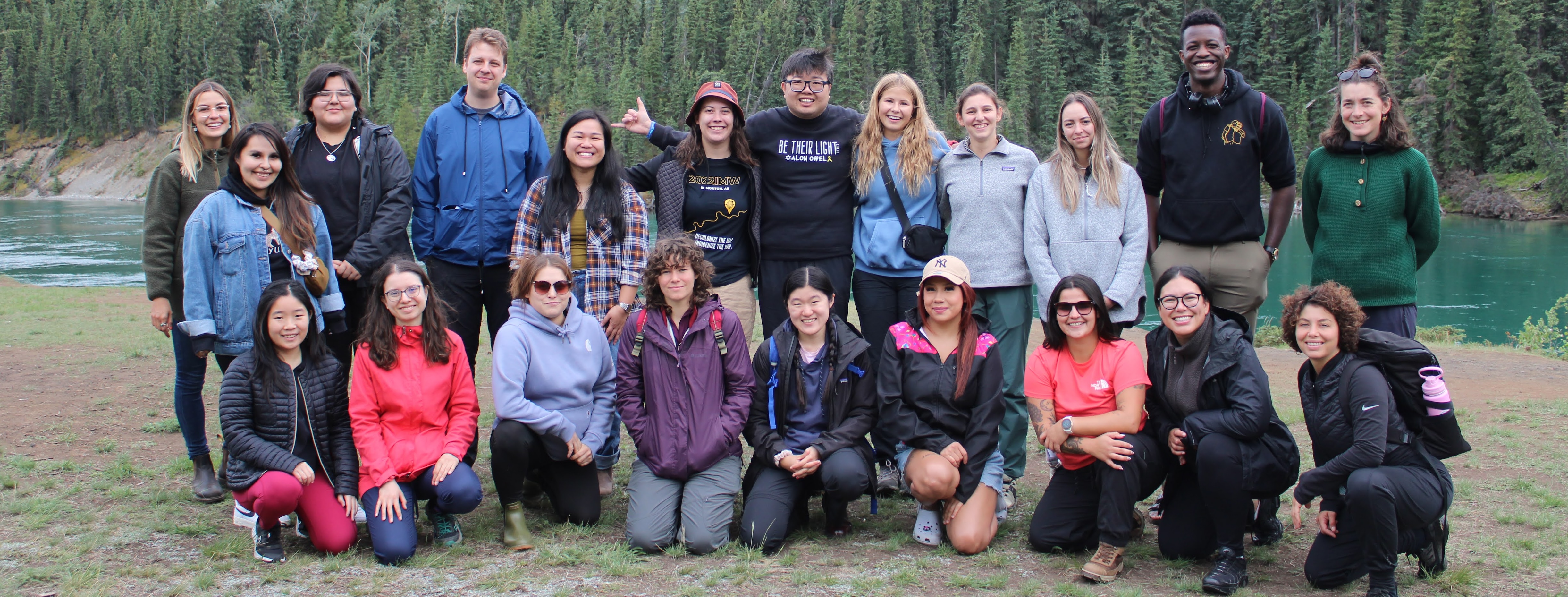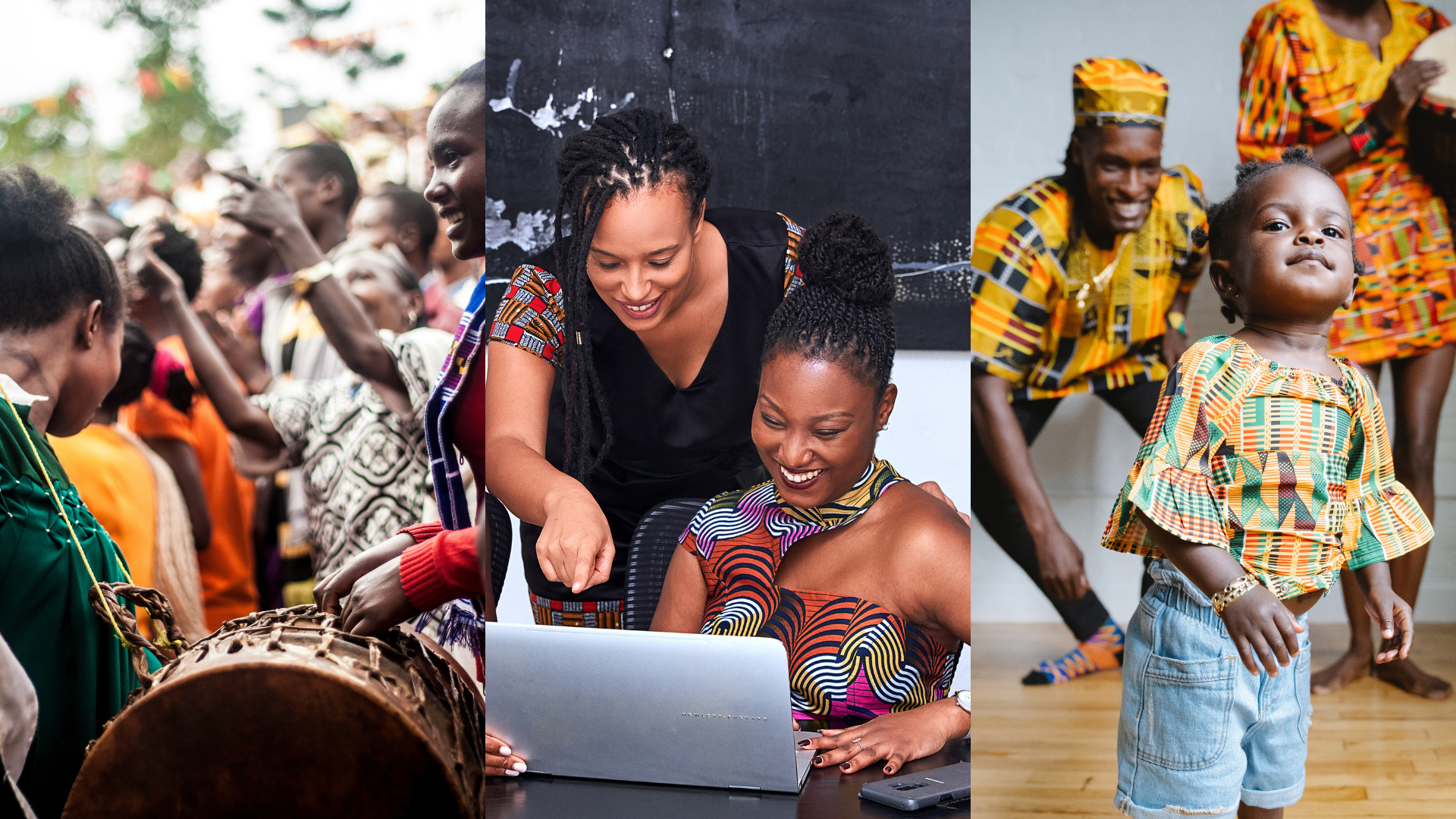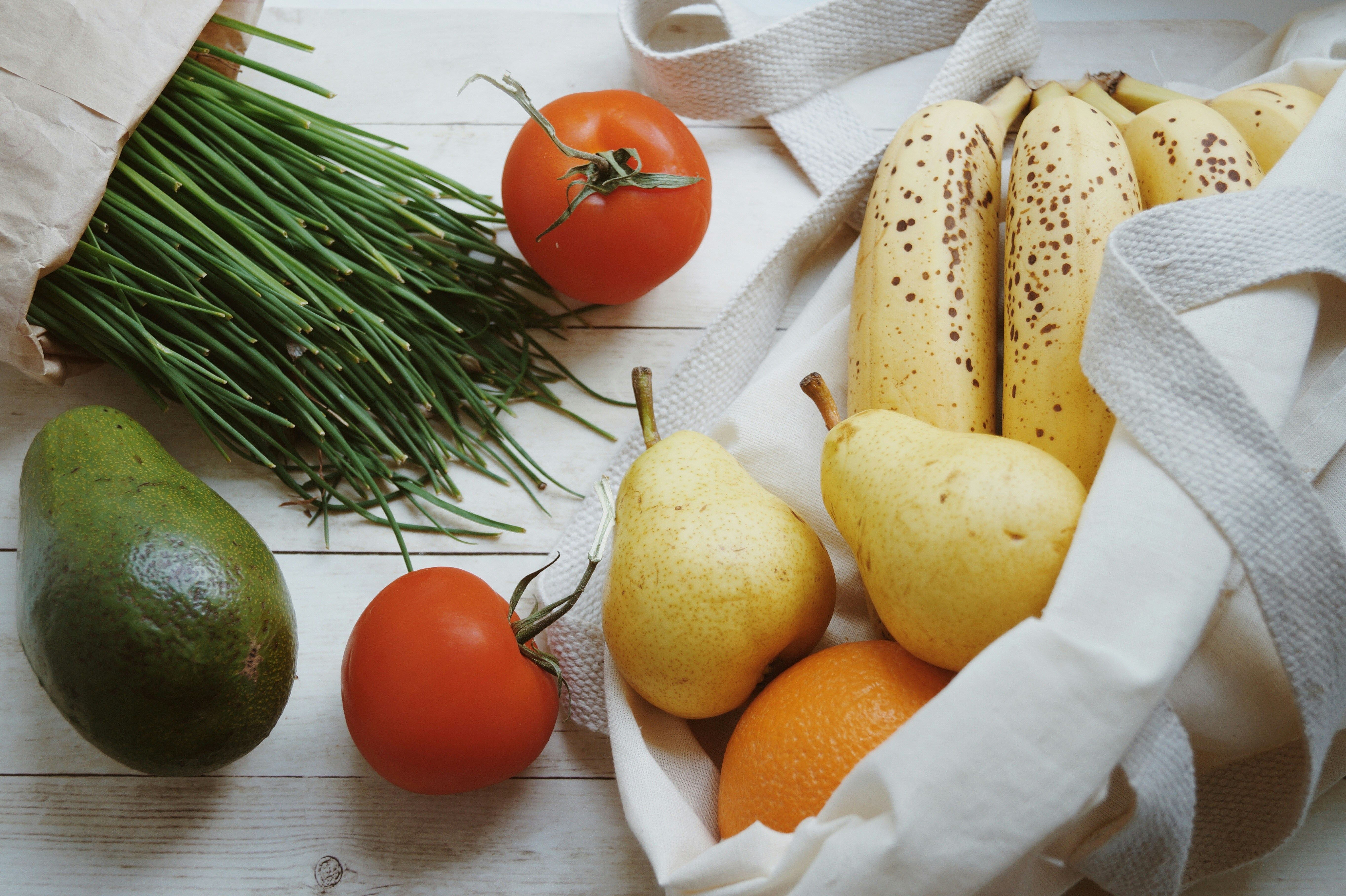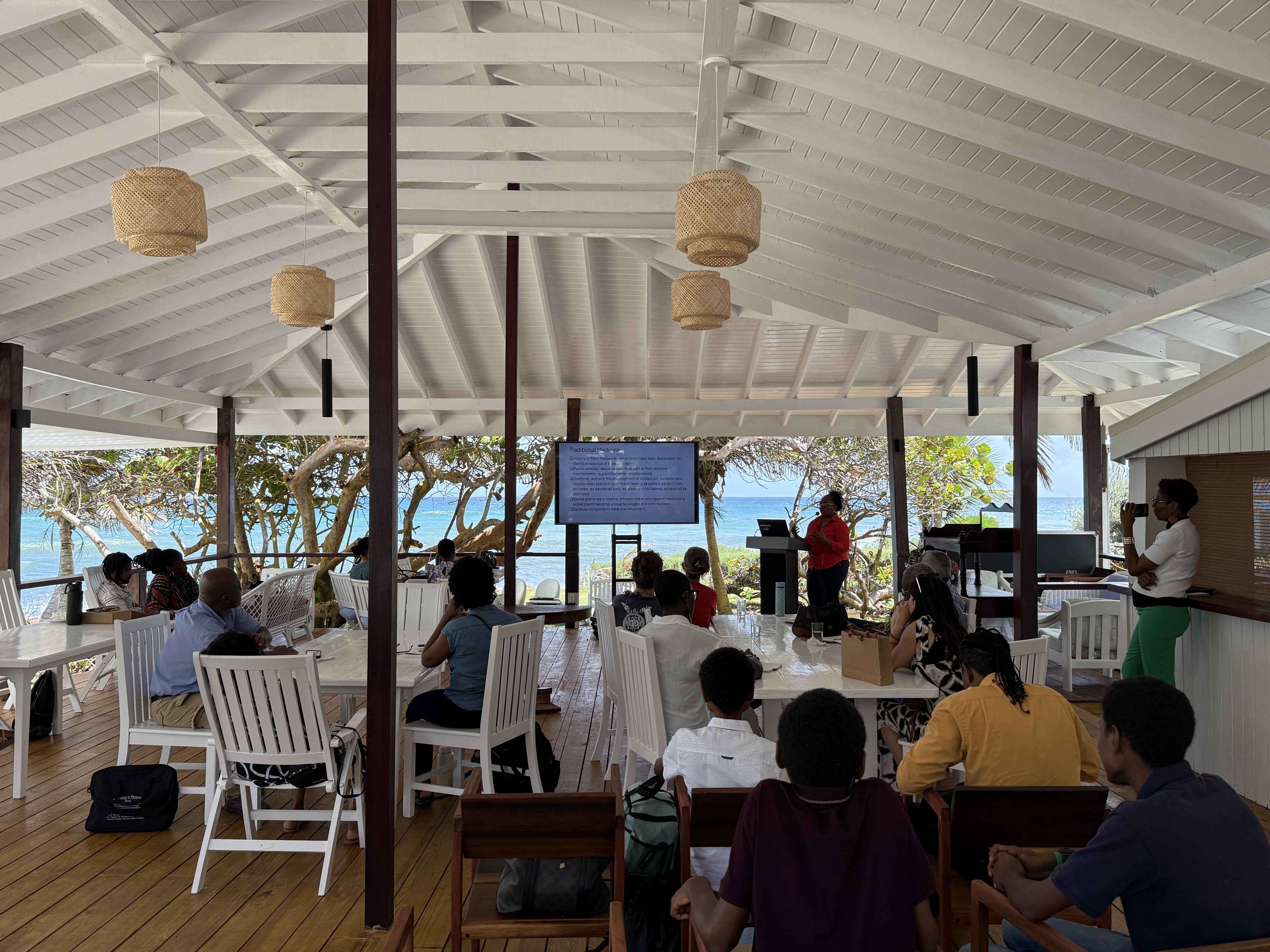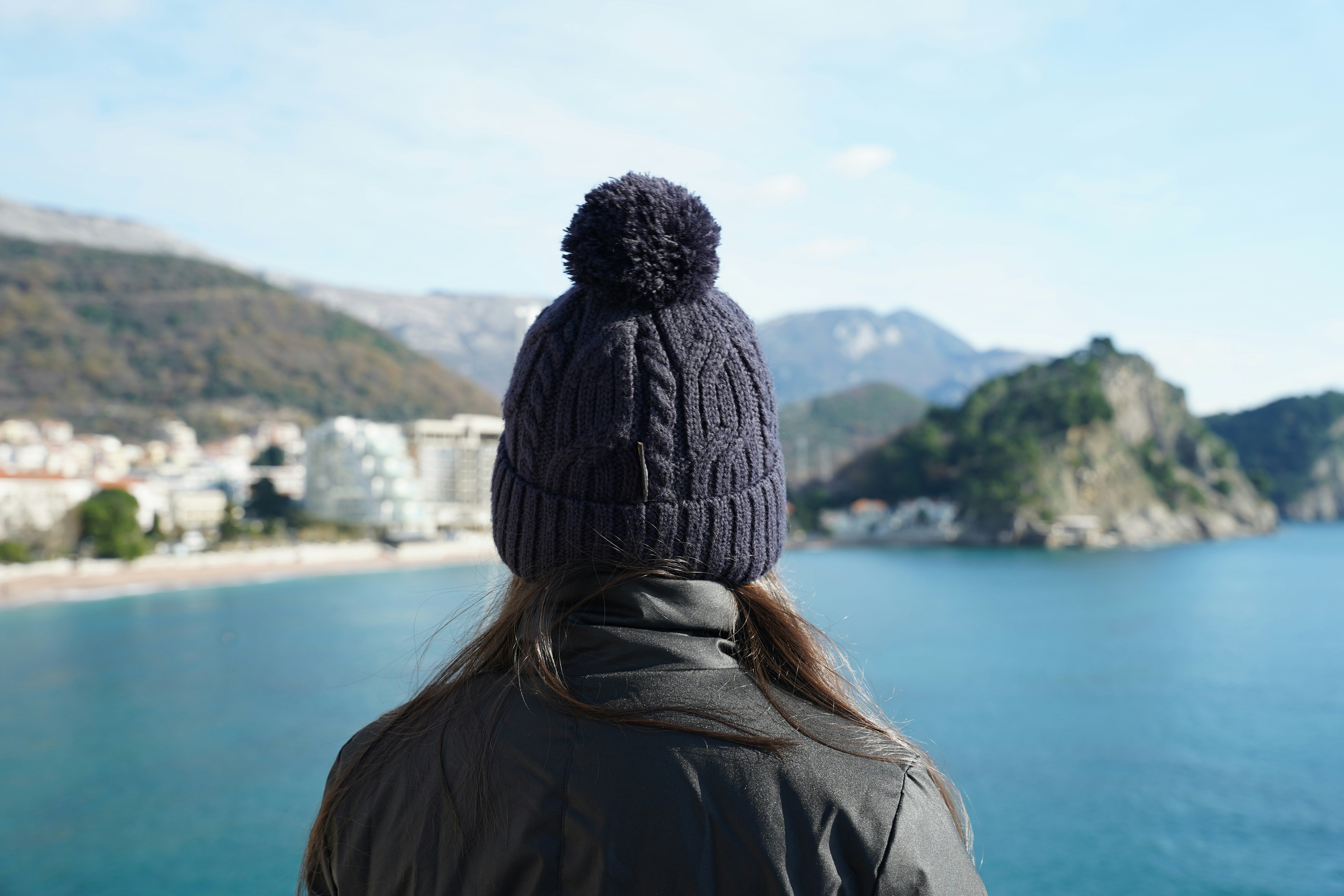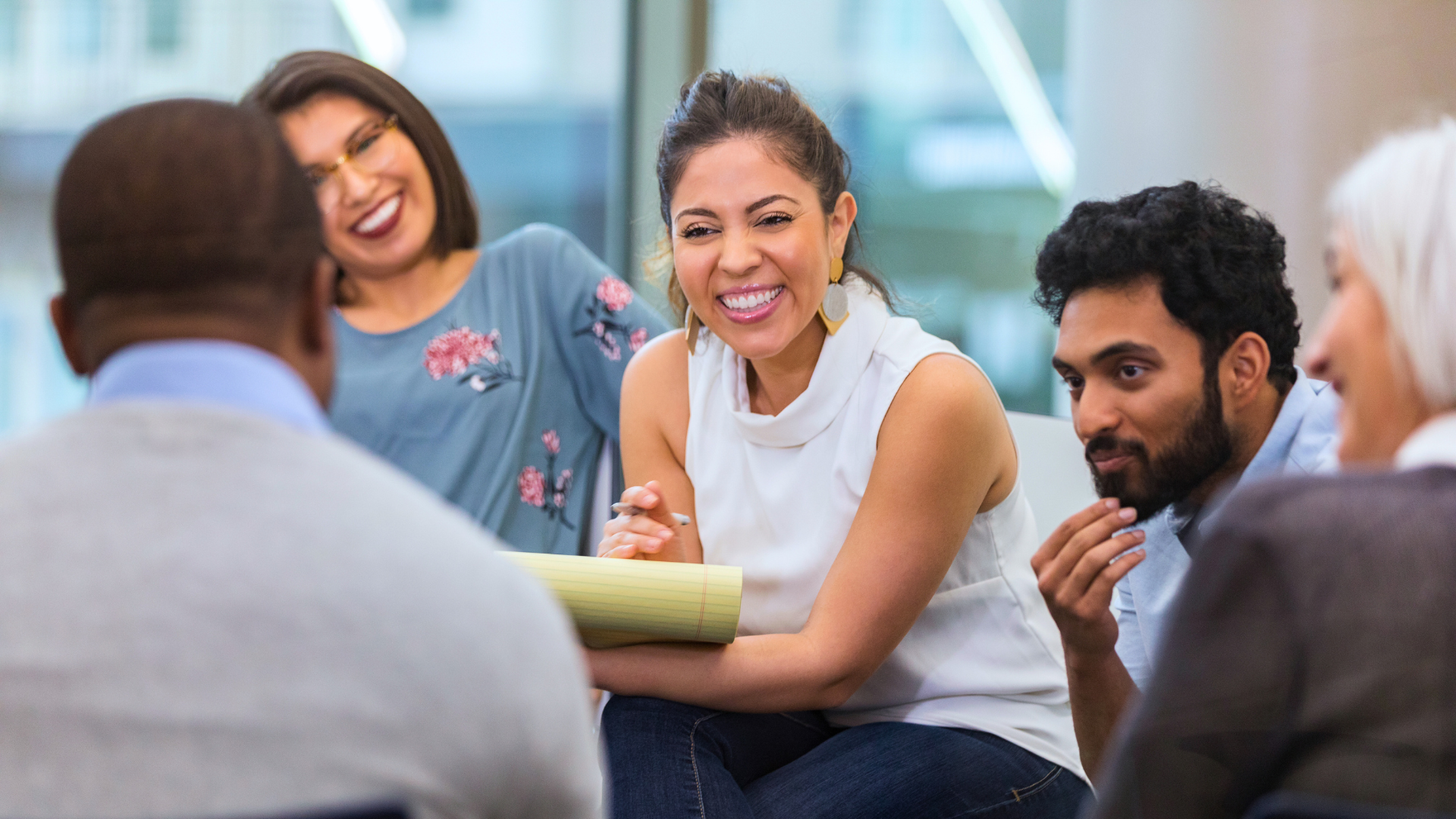
Travel-related costs were funded through the support of the Edmonton Heritage Council and the City of Edmonton career development stream of the Heritage Community Investment Program.
The Plants and Planting for the Future Symposium
Community, culture and collaboration converged in Barbados at the fourth Plants and Planting for the Future Symposium, organized by Dr. Sonia Peter and her team at the Biocultural Education Programme. Through the lens of people, place, and policy, the gathering became a living example of what it means to co-create intergenerational and sustainable futures rooted in ancestral knowledge and braided with modern insight. The symposium served as a fertile gathering place for ecosystem partners to discuss the importance of conserving plant biodiversity for food, medicine, and resilience.
The Power of People: Intergenerational Knowledge and Collaboration
Plants and Planting for the Future is a biennial gathering that connects academic researchers, plant practitioners, community organizers, and youth from across the Caribbean and beyond. This year, it was clear that the biocultural diversity community is not only conserving plants, but conserving ways of knowing, being, and relating.
Children sat beside their parents in learning spaces, not just listening but engaging: talking about their post-secondary dreams, the heartbreak of brain drain and leaving behind their families and communities, and their desire for their voice and knowledge to be heard in climate movements. Making space for youth voices offers a reminder that sharing knowledge to future generations begins early and informally, and that youth are not just future leaders, they are current leaders who can contribute innovation and creativity to complex challenges related to preserving plant biocultural diversity.

Bernice Chase at the Plants and Planting for the Future Symposium, photographed by Diane Ignacio
The theme of the event was learning by immersion, with experiences facilitated by people passionate to share their knowledge with a burgeoning community. Their sessions bridged land-based research and culture, offering sensory ways to connect with plant knowledge. Examples included Bernice Chase sharing a tasting menu of under-utilized plant species, an herbal tea blending workshop led by Dr. Sonia Peter, and a tour of Coco Hill Food Forest hosted by Mahmood Patel.

Rochelle with Dr. Laura Roberts-Nkrumah and Mr. Mabrak Nkrumah at the entrance to Cocohill Forest
The organizers were mindful to centre the wisdom of youth and seniors by not only ensuring that both audiences were in attendance, but were actively contributing as symposium presenters. It was an honour to soak up knowledge from Elders Dr. Laura Roberts-Nkrumah, lovingly referred to as the “breadfruit champion” who shared research on the neglected crop’s nutritional value and cultural relevance, and her husband, Mr. Mabrak Nkrumah, who contributed his lived experience as a Caribbean Elder and soil science researcher. Together, their teachings reflected the importance of research grounded in community practice and ancestral knowledge. At the same time, we learned from youth presenters such as Shontelle Sealy from Future Farmers Think Tank who emphasized that early engagement in agriculture and conservation shapes young people into lifelong stewards of biodiversity. The symposium is a demonstration that passing on plant-based and ancestral knowledge is critical to the sustainability of our communities and practices.
As Frances, a community member, reflected:
“We need to get back to our Indigenous knowledge. We’ve lost it in this generation. The more we know, the more we can pass on.”
The Biocultural Education Programme provided an inspiring response for engaging across generations: Yabisi Guada offers age-appropriate colouring books linking illustrations of plants with stories about food, medicine, and spirituality from the island’s first inhabitants. It’s both an educational tool and an act of reclamation of plant knowledge.
The Power of Place: Regeneration Rooted in Land
The symposium not only talked about regeneration, it also modeled it. By hosting participants at Ocean Spray Apartments, organizers ensured that accommodations directly funded Coco Hill Food Forest, a 53-acre agro-tourism project that includes hiking trails, over 70 species of tropical fruit trees, and an emerging local rum enterprise.
Tourism at Ocean Spray Apartments isn’t extractive, it’s regenerative. It reinvests into the land, into knowledge systems, and into ancestral foodways. These choices represent a model for ethical tourism that supports community resilience and economic sovereignty.

University of the West Indies (UWI) Food and Nutrition students Jenecia Lewis, Denisha Layne, and Sanica Padmore present their research. Photographed by Diane Ignacio.
Food, unsurprisingly, became a recurring theme. Following a workshop on Innovative Cuisine with Underutilized Plants, I purchased breadfruit pasta from food designer Bernice Chase, who is turning heritage crops into culinary art. Meanwhile, a team of University of the West Indies (UWI) Food and Nutrition students (Jenecia Lewis, Denisha Layne, Sanica Padmore) presented research on food packaging strategies that make breadfruit appealing to families, reclaiming it from the margins of memory.
As Dr. Kimberly King reflected,
“We’ve lost our connection to communal practices like having a fruit tree or backyard garden to share with neighbours.”
That shift from whole foods and interdependence to convenience and isolation has contributed to our loneliness and chronic illness epidemics. But we can return. Food sovereignty starts at home with getting to know your neighbour, sharing harvests, and resisting the pull of convenience culture.
The Power of Policy: Protecting Knowledge, Nourishing Futures
Dr. David Bynoe’s opening keynote captured the urgency of developing policy frameworks that safeguard both biodiversity and biocultural wisdom. Policy is the answer that will safeguard our health and our cultural legacy.
“Plants are our partners who feed, heal, inspire, and shelter us. They must be nurtured with intention. They must be protected with policy.” - Dr. David Bynoe
Dr. Diane Ignacio helped symposium participants understand the critical role that policy and legislation play in protecting consumers from fraudulent health claims, especially those not supported by scientific research.

Dr. David Bynoe. Photographed by Diane Ignacio.
Dr. Sonia Peter shared how plants contain ancestral knowledge critical to healing, health, and identity. She reminded us that plant medicine and holistic practices such as massage, yoga, herbal teas are still marginalized despite their growing legitimacy in health circles. Advocacy is required to legitimize and normalize holistic plant practices into recognized treatment forms.
|
- Aleya Fraser, land steward |
|
We also heard from communities wrestling with infrastructure and climate readiness. Gigi Williams shared her concern about the recent rise in Bahamas’ forest fires which uncovered the need to formalize collaborative fire mitigation, preparedness and response systems. “Big problems,” she said, “require bigger solutions.”
Global Connections: Weaving Our Food Sovereignty Ecosystem
Preparing for the symposium led me to discover similar food sovereignty stories across Tamarack’s network that mirror and strengthen a broader global movement. From Toronto Black Farmers and Food Growers Collective and urban farm to community of Tahsis’ Good Food Box Program, communities across what we now call Canada are nurturing food systems rooted in abundance, justice, and memory.
-
In Tahsis, a simple Good Food Box program reduces costs and emissions by coordinating bulk orders for remote Indigenous communities.
-
In Kahnawà:ke, food security is strengthened through intergenerational gardening practices, community tool libraries, and the creation of communal practices such as seed conferences.
-
And in Toronto, culturally rooted crops like Jamaican callaloo and ugu, Nigerian fluted pumpkins, are being grown alongside elementary-age agriculture programs and the establishment of currency that enables food access.
In my own Food as Liberation presentation that I offered during the symposium, I wove these stories into a vision of food as anti-racist cultural text: one that resists colonization and reclaims joy through developing Feed the Soul YEG, which offers culturally rooted and educational food experiences.

Rochelle Ignacio shares a presentation titled "Food as Liberation".
I was so inspired by my learnings and connections that I spent time debriefing with Tamarack’s CEO, Danya Pastuszek, where she shared her first experience consuming breadfruit a decade ago at her brother’s wedding in Dominica. This conversation reinforced that our connection to foodways offers communal experiences that can evoke emotions and memories, helping us relate to one another and form a sense of belonging
During the symposium, a thread of conversation centred around the reality that research and patent practices guised as innovation are indeed modern forms of colonizing ancestral knowledge that is inherently community-owned. On the final portion of my Caribbean exploration, I found myself exploring Maracas Valley in Trinidad where I encountered this reality. Although I was travelling with a local agricultural practitioner who I met at the symposium, our inquisitive greeting with a group of Canadian university researchers was quickly dismissed. Although I’m not local to Trinidad, as someone with descent on both lineages, I found myself reflecting on the interaction: how I can be a better steward of lands I reside on and visit, and how I can be a better accomplice to land-based movements connected to Indigenous sovereignty. The Plants and Planting for the Future symposium offers hope that collectives who are knowledgeable and passionate about relational practices can be upheld in research and exploration through policy advocacy that aims to address extractive practices with ways of being that offer gratitude, relationality and humility.
Collective Impact: A Growing Movement
Plants and Planting for the Future is more than a symposium. It’s a growing ecosystem of change. Since the symposium’s inception, it has brought together participants ranging in age from toddlers to elders from sectors including health, education, agriculture, tourism, culture, and public policy. Held every two years, the symposium continues to build momentum across the Caribbean and beyond.
To date, the symposium has hosted four gatherings and reached over 2,000 participants and partners. The organizing team continues to deepen engagement using a blend of in-person and virtual strategies. The 2021 virtual symposium notably expanded the community’s reach across the Caribbean, Africa, North America, and Asia, many of whom have remained connected and continue to participate in the biennial gatherings.
Organizers report that their intentional strategies for engaging the biocultural community have been warmly received by both practitioners and academics. In 2024, Tamarack facilitated an introduction between the Biocultural Education Programme and Communities Building Belonging member, The Learning Tree, which led to an invitation for Dr. Sonia Peter to present “Tea as a Form of Resistance.” This workshop sparked interest in adapting the offering to meet the place-based needs of a community outreach program. That same year, the Programme was invited to present on the value of ancestral knowledge and its role in innovative healthcare modalities at the 22nd Oxford International Conference on the Science of Botanicals, as part of a session on Afro-Caribbean Botanicals.
These moments underscore how local, place-based knowledge can spark innovation, inspire policy, and connect cross-sector responses to complex challenges that demand our collective understanding and action.

Maracas Valley, Trinidad.
In recognition of her leadership and vision, the American Association for the Advancement of Science (AAAS) Caribbean Chapter awarded Dr. Sonia Peter a certificate of recognition for her contributions to advancing biocultural education in the region. This honour was rooted in a connection made through Dr. Alok Arun, a 2023 symposium participant from the Inter American University of Puerto Rico.
Exciting work is also underway to engage Caribbean universities in curriculum development focused on foodways and health. This will offer additional pathways for symposium participants to contribute to and shape the evolving field of biocultural practice and study.
Mapping the relationships, partnerships, and recognitions that have emerged from each symposium is becoming an important act of archival care, one that reflects the far-reaching impact of this community. Dr. Peter and her team remain energized by what is still to come.
|
I was curious to learn why collective biocultural learning spaces are important and Glyn, an emerging farmer said, “I was influenced to join the symposium because of my grandmother who often used plants in her cooking. I also wanted to see what’s going on in agriculture. These factors make me naturally inclined to experience the symposium, which has been beneficial as I establish my farm.”
|
|
Closing: Seeds of Hope
I left the symposium with recommitment to my dream: to co-create a Global Indigenous Land-Based Learning Journey, connecting youth and Elders in what we now call Canada with partners across the Caribbean and Earth Mother, culminating in a cross-sectoral and intergenerational exchange at the next symposium. This work would elevate seed banking, school gardens, and the restoration of Indigenous foodways, not as nostalgia, but as futurist thinking. Because, as Dr. Bynoe put it,
“Plant diversity is not ornamental, it’s foundational. It nourishes our bodies, heals our ailments, feeds our nations, and safeguards our future.”
If you have ideas, wisdom, or resources that can help make this dream a reality, I would love to hear from you: rochelle@tamarackcommunity.ca.
Let’s keep planting for the future.
Learn More
-
Read Planting the Seeds of the Future: Exploring Biocultural Diversity for Sustainability, which offers Rochelle’s reflections from her first time attending the Plants and Planting for the Future Symposium
-
Explore the Seeds of Transformation: a loving framework for equity, reconciliation, and belonging
-
Watch the "Black Ancestries and Relations for a Just Climate Future" webinar, featuring the relationship between Black people and climate change responses.


 “As a [global] plant practitioner, the symposium offers a way for me to gain knowledge to answer the community's questions about plants, including benefits, usages, and protocols. It’s important to see that scientists are working on standardizing and documenting our plant knowledge. I can verify for community what innovations are working that Caribbean researchers are leading out on. Plants and Planting for the Future is an affirming space.”
“As a [global] plant practitioner, the symposium offers a way for me to gain knowledge to answer the community's questions about plants, including benefits, usages, and protocols. It’s important to see that scientists are working on standardizing and documenting our plant knowledge. I can verify for community what innovations are working that Caribbean researchers are leading out on. Plants and Planting for the Future is an affirming space.” 